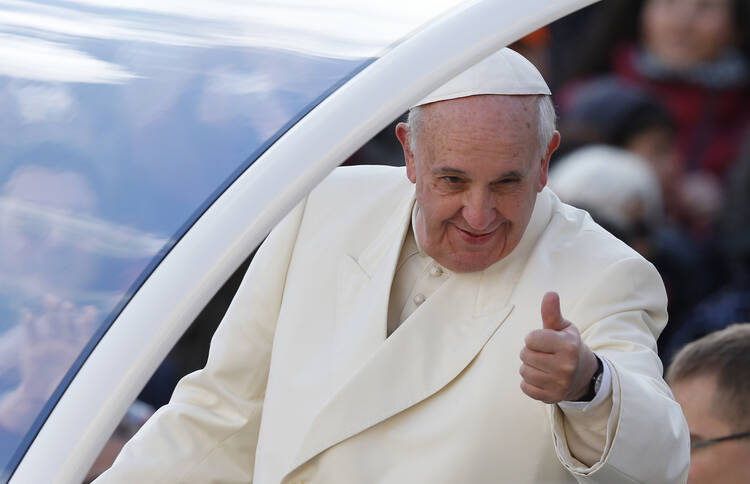I am reading one of the new books about Pope Francis, this one a collection of interviews that he gave when still a cardinal. It's titled Pope Francis: His Life in His Own Words. One of the questions he addresses is, "How do you examine your life and your ministry before God?" The humility of his response, the honesty of his self-assessment, has much to offer those in positions of leadership (and anyone, really):
From a young age, life pushed me into leadership roles--as soon as I was ordained a priest, I was designated as the master of novices, and two and a half years later, of the province--and I had to learn from my errors along the way, because, to tell you the truth, I made hundreds of errors. Errors and sins. It would be wrong for me to say that these days I ask forgiveness for the sins and offenses that I might have committed. Today I ask forgiveness for the sins and offenses that I did indeed commit.
I am struck by his phrase, the "errors along the way." How often do we take inventory of our errors, of our sins? How often do we admit to them? We don't want to highlight our own limitations. We don't want to empower our enemies. We do not want to think that we have fallen short. But Pope Francis' honest self-assessment reminds us that to be human is to be error-prone; it is to be sin-prone. We will, without a doubt, make the wrong decisions -- even great leaders, even holy people. That much is inevitable, but is our honest evaluation inevitable? Do we acknowledge our errors directly and ask for pardon, or do we brush aside our bad choices with platitudes like, "I'm only human" or "nobody's perfect," statements which are really just evasions?
Francis' words sketch the path: do not evade, do not fear, do not pretend to be perfect. Be humble, forgiving, honest and merciful, and then you will be free.








